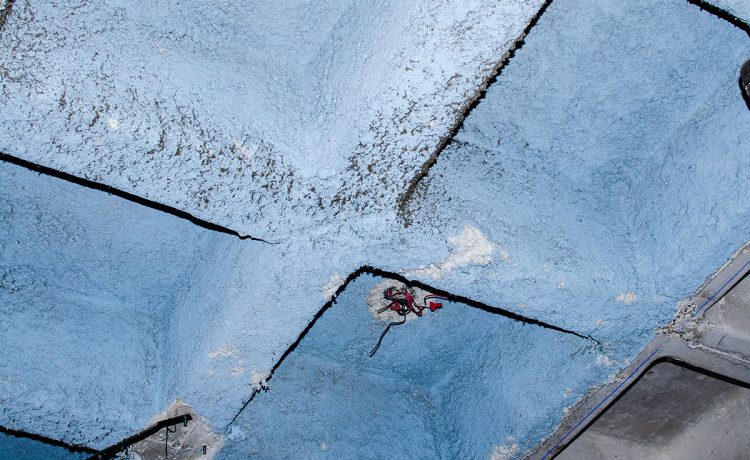Common Sources of Asbestos Exposure in Military Settings
Veterans may encounter asbestos in various military environments. Common sources include:
- Shipyards: Asbestos was often used in shipbuilding and repair.
- Barracks: Older buildings may contain asbestos in insulation and flooring.
- Vehicles: Some military vehicles had asbestos in brakes and clutches.
Health Implications of Asbestos Exposure
Exposure to asbestos can lead to serious health issues. Some of the main concerns are:
- Lung Diseases: Asbestos can cause lung cancer and other respiratory problems.
- Mesothelioma: This is a rare cancer linked directly to asbestos exposure.
- Asbestosis: A chronic lung condition that results from inhaling asbestos fibers.
Identifying Symptoms of Asbestos-Related Diseases
Recognizing the symptoms of asbestos-related diseases is crucial for early diagnosis. Common symptoms include:
- Persistent Cough: A cough that does not go away may indicate lung issues.
- Shortness of Breath: Difficulty breathing can be a sign of serious health problems.
- Chest Pain: Discomfort in the chest area should not be ignored.
Legal Rights of Veterans Affected by Asbestos
Eligibility for Compensation
Veterans who have been exposed to asbestos may be entitled to various forms of compensation. This can include:
- VA Disability Benefits: Financial support for service-related health issues.
- Workers’ Compensation: Benefits for injuries or illnesses caused by work-related exposure.
- Legal Settlements: Compensation from lawsuits against companies responsible for asbestos exposure.
Navigating the VA Claims Process
The process of filing a claim with the VA can be complex. Here are some steps to follow:
- Gather Medical Records: Collect all relevant health documents.
- Complete the Application: Fill out the necessary forms accurately.
- Submit Evidence: Provide proof of exposure and health conditions.
Legal Protections for Veterans and Their Families
Veterans and their families have specific legal protections, including:
- Right to File Claims: Veterans can file claims for benefits without fear of retaliation.
- Family Support: Family members may also be eligible for benefits if they are affected by the veteran’s exposure.
- Legal Assistance: Many organizations offer free legal help to veterans seeking compensation.
Steps to Take After Asbestos Exposure
Medical Evaluations and Screenings
After being exposed to asbestos, it is crucial for individuals to seek medical evaluations. This can help in identifying any potential health issues early on. Here are some steps to consider:
- Schedule a Doctor’s Appointment: It is important to see a healthcare provider who understands asbestos-related conditions.
- Request Specific Tests: Ask for tests that can check for lung function and other related health concerns.
- Keep Records: Document all medical visits and tests for future reference.
Documenting Exposure and Health Issues
Keeping a detailed record of exposure and health problems is essential. This documentation can be vital for any future claims or legal actions. Consider the following:
- Write Down Details: Note when and where the exposure occurred, including any specific incidents.
- Track Symptoms: Keep a log of any symptoms experienced, including dates and severity.
- Gather Supporting Documents: Collect any relevant documents, such as work records or medical reports.
Seeking Legal Advice and Representation
Veterans and their families should consider seeking legal advice to understand their rights and options. Here are some steps to take:
- Consult with a Lawyer: Find a lawyer who specializes in asbestos cases to discuss potential legal actions.
- Understand Your Rights: Learn about the legal protections available for veterans and their families.
- Prepare for Meetings: Bring all documentation related to exposure and health issues to legal consultations.
Types of Compensation Available for Asbestos Exposure
VA Benefits and Compensation
Veterans who have been exposed to asbestos may be eligible for various benefits through the Department of Veterans Affairs (VA). These benefits can include:
- Monthly disability payments for those who have developed health issues due to asbestos exposure.
- Healthcare services that cover treatment for asbestos-related diseases.
- Vocational rehabilitation to help veterans return to work if they are able.
Private Lawsuits and Settlements
In addition to VA benefits, veterans and their families can pursue mesothelioma compensation through filing a lawsuit. This can involve:
- Filing a lawsuit against companies that manufactured or used asbestos products.
- Negotiating settlements with these companies to receive financial compensation.
- Joining class-action lawsuits if many individuals are affected by the same company or product.
Trust Funds for Asbestos Victims
Many companies that used asbestos have set up trust funds to compensate victims. These funds can provide:
- Direct payments to individuals diagnosed with asbestos-related diseases.
- Financial support for families of veterans who have passed away due to these conditions.
- Easier access to compensation without the need for lengthy court battles.
Finding the Right Legal Representation
When veterans and their families seek legal help for asbestos exposure, choosing the right attorney is crucial. The following points can guide them in making an informed decision:
Qualities to Look for in an Asbestos Attorney
- Experience: Look for a lawyer who has handled asbestos cases before. They should understand the specific laws and regulations related to asbestos exposure.
- Reputation: Research the attorney’s reputation. Check reviews and ask for references to ensure they are respected in their field.
- Communication Skills: The attorney should be able to explain complex legal terms in simple language. Good communication is key to a successful attorney-client relationship.
Questions to Ask Potential Lawyers
- What is your experience with asbestos-related cases?
- How do you plan to approach my case?
- What are your fees, and how are they structured?
Understanding Legal Fees and Costs
- Contingency Fees: Many asbestos attorneys work on a contingency basis, meaning they only get paid if the client wins the case. This can be a good option for veterans who may have limited funds.
- Upfront Costs: Some lawyers may require upfront payments for certain services. It’s important to clarify these costs before signing any agreements.
- Additional Expenses: Be aware of any extra costs that may arise during the legal process, such as court fees or expert witness fees.
Resources for Veterans and Their Families
Veterans and their families facing the challenges of asbestos exposure can find various resources to help them navigate their situation. These resources include support groups, educational materials, and financial assistance programs.
Support Groups and Counseling Services
- Peer Support: Many organizations offer support groups where veterans can share their experiences and feelings with others who understand their struggles.
- Counseling Services: Professional counselors can provide emotional support and coping strategies for veterans and their families dealing with the impact of asbestos exposure.
- Online Forums: Virtual communities allow veterans to connect with others, share information, and find encouragement from those in similar situations.
Educational Materials and Workshops
- Informational Brochures: Many organizations provide brochures that explain the risks of asbestos exposure and the rights of veterans.
- Workshops: Local community centers or veteran organizations often host workshops to educate veterans and their families about asbestos-related health issues and legal options.
- Webinars: Online seminars can offer valuable information on navigating the legal system and understanding health implications related to asbestos exposure.
Financial Assistance Programs
- VA Benefits: Veterans may be eligible for various benefits that can help cover medical expenses related to asbestos exposure.
- Non-Profit Organizations: Some non-profits offer financial aid to veterans and their families affected by asbestos-related diseases.
- Grants and Scholarships: Certain programs provide grants or scholarships to help veterans pursue education or training after facing health challenges.
Preventing Asbestos Exposure in the Home
Identifying Asbestos in Household Materials
To keep homes safe from asbestos, it is crucial to know where it might be found. Common places include:
- Old insulation: Often found in attics and walls.
- Floor tiles: Some older tiles contain asbestos.
- Roofing materials: Shingles and other roofing products may have asbestos.
Safe Removal and Disposal of Asbestos
If asbestos is found, it is important to handle it carefully. Here are steps to follow:
- Do not disturb it: If the material is in good condition, leave it alone.
- Hire professionals: Always get experts to remove asbestos safely.
- Follow local laws: Make sure to dispose of asbestos according to local regulations.
Hiring Professional Asbestos Abatement Services
Choosing the right team for asbestos removal is vital. Consider these points:
- Check credentials: Ensure the company is licensed and insured.
- Ask for references: Look for reviews or testimonials from past clients.
- Get multiple quotes: Compare prices and services from different companies.
The Role of the VA in Asbestos-Related Cases
VA Healthcare Services for Asbestos-Related Conditions
The Department of Veterans Affairs (VA) provides essential healthcare services for veterans who have been exposed to asbestos. These services include:
- Regular check-ups to monitor health conditions related to asbestos exposure.
- Specialized treatments for diseases like mesothelioma and lung cancer.
- Access to mental health support for emotional challenges stemming from health issues.
Filing a VA Disability Claim
Veterans who suffer from asbestos-related diseases can file a disability claim with the VA. The process involves:
- Gathering medical records that show the diagnosis and connection to military service.
- Completing the VA claim form accurately to ensure all necessary information is included.
- Submitting the claim and waiting for the VA to review it, which may take several months.
Appealing a Denied Claim
If a claim is denied, veterans have the right to appeal. The steps to appeal include:
- Reviewing the denial letter to understand the reasons for denial.
- Collecting additional evidence that supports the claim.
- Filing an appeal within the specified time frame to ensure the case is reconsidered.
Impact of Asbestos Exposure on Families of Veterans
Asbestos exposure does not only affect veterans; it can also have serious consequences for their families. Understanding these impacts is crucial for both veterans and their loved ones.
Health Risks for Family Members
- Secondhand Exposure: Family members may inhale asbestos fibers brought home on clothing or skin.
- Increased Risk of Diseases: This exposure can lead to serious health issues, including lung cancer and mesothelioma.
- Long-Term Health Monitoring: Regular check-ups are essential for early detection of any asbestos-related conditions.
Emotional and Psychological Effects
- Stress and Anxiety: Families often experience worry about health risks and potential diseases.
- Support Needs: Emotional support is vital for coping with the fear and uncertainty surrounding asbestos exposure.
- Impact on Daily Life: The stress can affect family dynamics and overall quality of life.
Legal Options for Family Members
- Compensation Claims: Families may be eligible for compensation if a veteran suffers from an asbestos-related disease.
- Legal Guidance: Seeking advice from a lawyer who specializes in asbestos cases can help families understand their rights.
- Support Resources: Various organizations offer assistance and information about mesothelioma for families dealing with these issues.
Recent Legal Developments in Asbestos Cases
Changes in Asbestos Legislation
Recent changes in laws regarding asbestos have aimed to improve protections for victims. Key updates include:
- Stricter regulations on the use of asbestos in construction and manufacturing.
- Increased funding for research on asbestos-related diseases.
- Enhanced penalties for companies that violate safety standards.
Notable Court Cases and Verdicts
Several important court cases have shaped the landscape of asbestos litigation. Some notable outcomes include:
- Landmark verdicts that awarded significant compensation to victims and their families.
- Rulings that clarified the responsibilities of manufacturers regarding asbestos exposure.
- Cases that set precedents for future claims, making it easier for victims to seek justice.
Implications for Future Claims
The recent legal changes and court decisions have several implications for future asbestos claims:
- Easier access to compensation for veterans and their families.
- Greater awareness of the health risks associated with asbestos exposure.
- Potential for more lawsuits as victims become informed about their rights.
Understanding Mesothelioma and Other Asbestos-Related Diseases
Types of Asbestos-Related Diseases
Asbestos exposure can lead to several serious health issues. The most common diseases include:
- Mesothelioma: A rare cancer that affects the lining of the lungs, abdomen, or heart.
- Asbestosis: A chronic lung disease caused by inhaling asbestos fibers, leading to scarring of lung tissue.
- Lung Cancer: A common cancer that can develop from asbestos exposure, especially in smokers.
Treatment Options and Prognosis
Treatment for asbestos-related diseases varies based on the type and stage of the disease. Common options include:
- Surgery: To remove tumors or affected lung tissue.
- Chemotherapy: Using drugs to kill cancer cells or stop their growth.
- Radiation Therapy: Targeting cancer cells with high-energy rays.
The prognosis for these diseases can differ significantly:
- Mesothelioma: Often has a poor prognosis due to late diagnosis.
- Asbestosis: Can lead to severe complications but may be managed with treatment.
- Lung Cancer: Prognosis depends on the stage at diagnosis and overall health.
Research and Clinical Trials
Ongoing research is crucial for improving treatment and understanding asbestos-related diseases. Key areas of focus include:
- New Treatment Methods: Exploring innovative therapies to combat these diseases.
- Early Detection Techniques: Developing better ways to identify diseases at an earlier stage.
- Patient Support Studies: Understanding how to improve the quality of life for patients and their families.


















